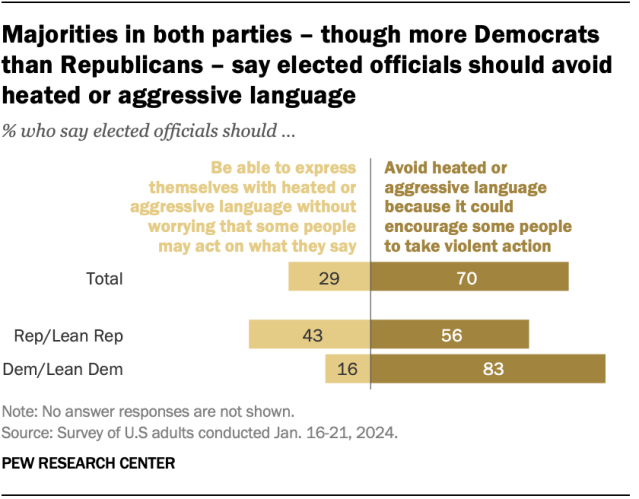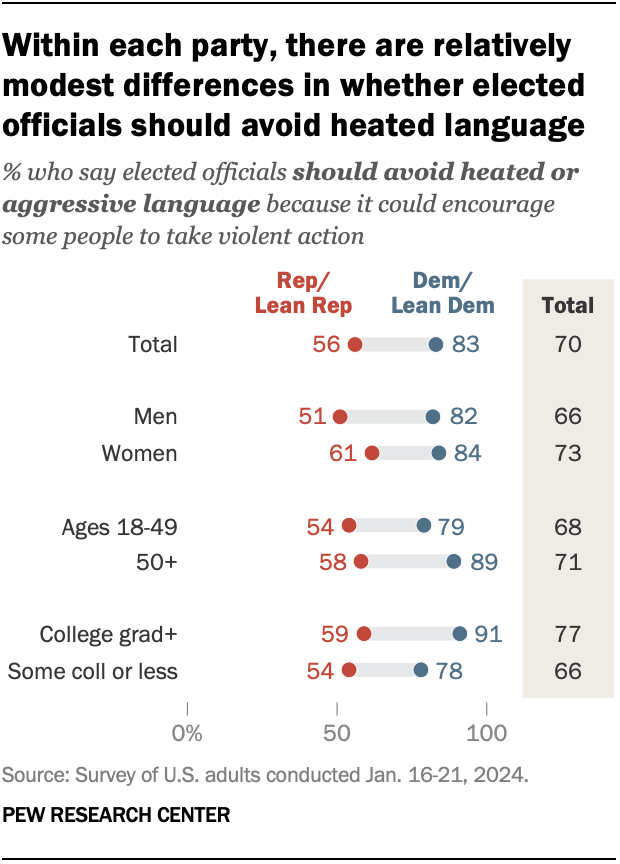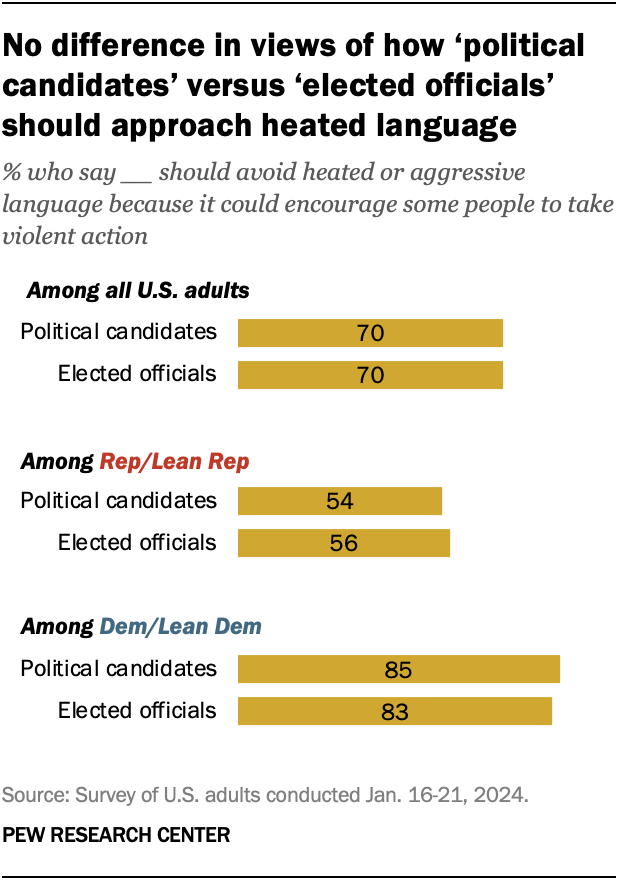Seven-in-ten Americans say elected officials should avoid heated or aggressive language because it could encourage some people to take violent action. By contrast, 29% say officials should be able to use heated language without worrying about how some people may act.

There are sizable partisan differences in these opinions, with Democrats more likely than Republicans to say elected officials should avoid heated language.
A narrow majority of Republicans and Republican-leaning independents (56%) say elected officials should avoid heated or aggressive language, while 43% say officials should be able to express themselves with this kind of language without worrying about whether people may act on what they say. Republicans today are more likely than in 2019 to see the use of heated or aggressive language by elected officials as acceptable: In 2019, 37% said officials should be able to use this kind of language.
By contrast, the vast majority of Democrats and Democratic-leaning independents (83%) say elected officials should avoid using heated language, while 16% say officials should be able to use this kind of language without worrying about how some people might act. There has been no change in views among Democrats since 2019.
Pew Research Center conducted this study to understand how the public views the use of heated or aggressive language by elected officials and political candidates. For this analysis, we surveyed 5,140 adults from Jan. 16 to Jan. 21, 2024. Everyone who took part in this survey is a member of the Center’s American Trends Panel (ATP), an online survey panel that is recruited through national, random sampling of residential addresses. This way nearly all U.S. adults have a chance of selection. The survey is weighted to be representative of the U.S. adult population by gender, race, ethnicity, partisan affiliation, education and other categories. Read more about the ATP’s methodology.
Here are the questions used for the report and its methodology.
In addition to the wide partisan gap on this question, there are some notable demographic differences, according to a new survey by Pew Research Center, conducted Jan. 16-21 among 5,140 adults:
Gender

Women are 7 percentage points more likely than men to say elected officials should avoid heated language (73% vs. 66%). This overall gender gap is driven primarily by differences among Republicans.
- 61% of Republican women say elected officials should avoid heated language, compared with 51% of GOP men.
- Democratic women and men do not differ substantially on this question.
Age
At least two-thirds of U.S. adults in all age groups say elected officials should avoid heated language. But there are some modest age differences within partisan groups, particularly among Democrats.
- Democrats ages 50 and older are more likely than those under 50 to say elected officials should avoid heated language (89% vs. 79%).
- 54% of Republicans under 50 and 58% of those ages 50 and older say elected officials should avoid using heated language.
Education
Adults who have at least a bachelor’s degree are more likely than those with less formal education to say elected officials should avoid the use of heated or aggressive language because it could encourage violence (77% vs. 66%). This pattern holds more among Democrats than Republicans.
- 91% of Democrats with at least a college degree say elected officials should avoid heated language, compared with 78% of Democrats who do not have a bachelor’s degree.
- Among Republicans, there is little difference on this question by education.
Do views differ when asked about ‘political candidates’ rather than ‘elected officials’?

Americans hold nearly identical views about the acceptability of “political candidates” using heated or aggressive language and the acceptability of “elected officials” doing so.
The same is true among partisans: Slim majorities of Republicans say political candidates (54%) and elected officials (56%) should not use heated language. And nearly identical shares of Democrats say political candidates (85%) and elected officials (83%) should avoid heated language.
Note: Here are the questions used for the report and its methodology.
